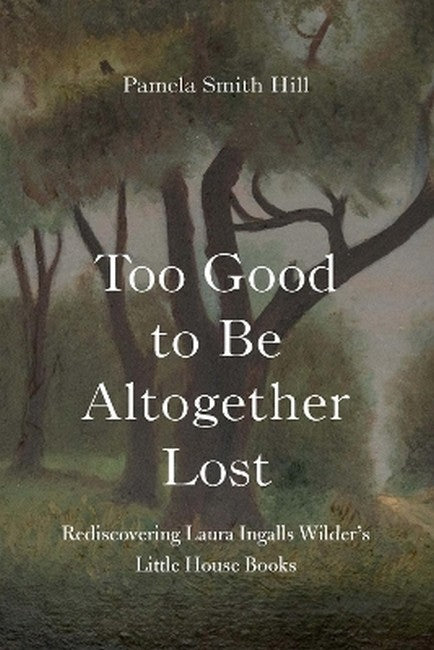Pamela Smith Hill is a New York Times best-selling editor, author, educator, and expert on Laura Ingalls Wilder. She has taught young adult literature and creative and professional writing at universities in Washington, Oregon, and Colorado, as well as classes on Laura Ingalls Wilder through Missouri State University. Hill has been interviewed for multiple documentaries on Wilder and has appeared on C-SPAN, NPR, PBS, and the BBC for her expertise. As well as three novels for young adults, her books include Pioneer Girl: The Annotated Autobiography and Laura Ingalls Wilder: A Writer's Life.
Request Academic Copy
Please copy the ISBN for submitting review copy form
Description
List of Illustrations Preface Acknowledgments 1. Ambition: Sustaining a Dream 2. Pioneer Girl: Literary Mother Lode 3. "When Grandma Was a Little Girl": A Little House Prelude 4. Little House in the Big Woods: Once Upon a Time 5. Farmer Boy: Mirror Image 6. Little House on the Prairie, Part One: A Series Is Born 7. Little House on the Prairie, Part Two: The Rise and Fall of a Children's Classic 8. On the Banks of Plum Creek: The Model for a Perfect Juvenile 9. By the Shores of Silver Lake: A Creative Leap of Faith 10. The Long Winter, Part One: Imaginative Iron 11. The Long Winter, Part Two: A Sustained Artistic Force 12. Little Town on the Prairie: A Classic Coming-of-Age Novel 13. These Happy Golden Years, Part One: A Knife in the Dark 14. These Happy Golden Years, Part Two: A Happy Ending 15. The First Four Years: Unraveling a Literary Mystery A Note on Sources Notes Bibliography Index
"In her third major study of Laura Ingalls Wilder's work, Pamela Smith Hill distinguishes herself as the preeminent Wilder scholar of this generation. Eminently readable, meticulously researched, without catering to passion or prejudice, Too Good to Be Altogether Lost places Wilder and the Little House books firmly in the pantheon of American literature."-Eric A. Kimmel, winner of the Sydney Taylor Award for Lifetime Achievement and the Regina Medal "Pamela Smith Hill's Too Good to Be Altogether Lost offers an important next step in ongoing conversations and controversies surrounding Laura Ingalls Wilder's work. Through her close and thoughtful readings and intimate knowledge of Wilder's life, process, and writing, Hill suggests new and useful perspectives on her groundbreaking books, their place in history, their literary merits, and their relationship to historical attitudes about race, gender, and manifest destiny. And Hill breaks new ground herself in her chapter on The First Four Years with a startling hypothesis about the writing of the novel long presented as the final installment in the Little House series. Wilder fans and scholars alike should prepare to have their minds blown by Hill's intriguing and thoroughly researched take on this work. Through her reconsideration, Hill demonstrates that even works that have become entrenched in our imaginations can yield new discoveries, and how despite perceived flaws and changing times, these books are too good to be altogether lost."-Nancy McCabe, author of From Little Houses to Little Women: Revisiting a Literary Childhood "With the voluminous scholarship concerning Laura Ingalls Wilder's life and literary output can there be a need for a fresh and expanded assessment of the author's writings? In author Pamela Smith Hill's Too Good to be Altogether Lost the answer is a resounding 'yes.' As one of Wilder's chief biographers, with a near-lifetime of researching, teaching, and writing about the author of the Little House books Hill proves that there is more to say about the creation of the books and how they resonate in current American culture. . . . . With impeccable sources and wise analysis, [Hill] tackles with panache the endlessly fascinating tale of the Little House writing collaboration between Wilder and her daughter Rose Wilder Lane. Hill also creates a case for the Little House canon as a valid source for future reading, assessment, and appreciation. This is a welcome and recommended book indeed."-William Anderson, editor of The Selected Letters of Laura Ingalls Wilder

